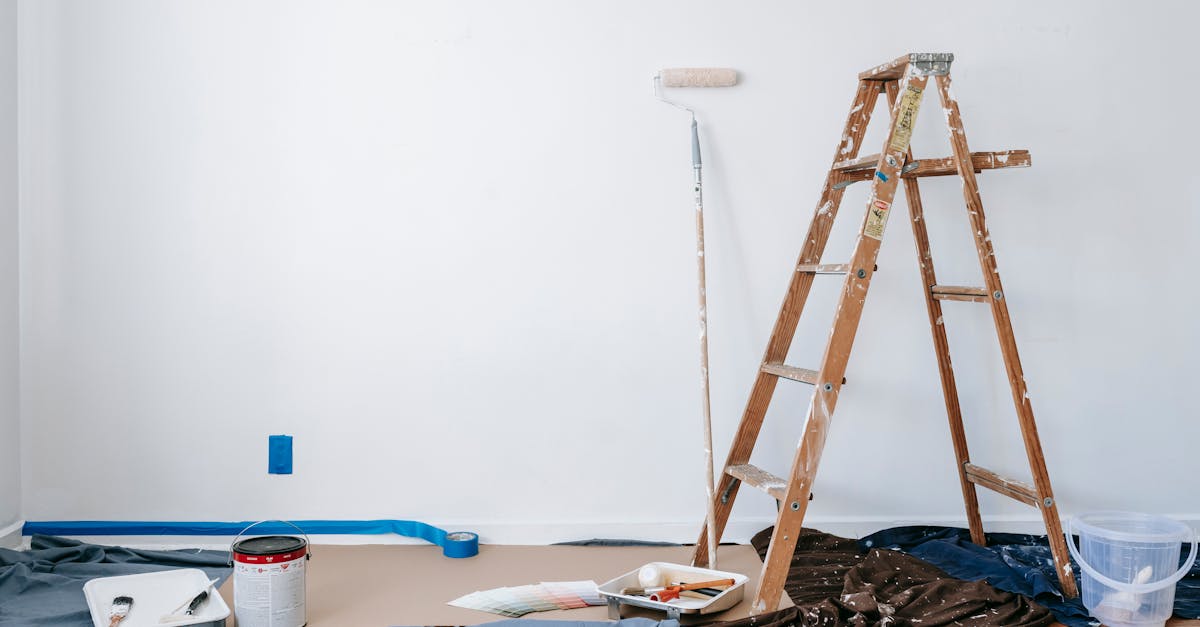House hacking renovations might just be the secret sauce to turning a property into a money-making machine. Imagine living in your dream home while someone else foots the bill—sounds like a fantasy, right? Well, it’s time to wake up and grab that toolbox! With a little creativity and some elbow grease, anyone can transform their space into a rental haven.
Table of Contents
ToggleWhat Is House Hacking?
House hacking refers to a strategy where homeowners utilize their property to generate rental income. This approach allows individuals to live in their primary residence while simultaneously renting out portions of it. Common methods include renting out a room, converting a basement into an apartment, or even listing a guest house on platforms like Airbnb.
Investors find house hacking appealing since it significantly reduces housing costs. Renters often cover mortgage payments and other property expenses, leading to potential profit from the investment. The National Association of Realtors reports that properties with rental opportunities offer homeowners financial stability.
People engage in house hacking for various reasons, including improving cash flow, building equity, and enhancing property value. Successful house hacking often involves strategic renovations that create separate living spaces or offer desirable amenities to attract renters. Some common renovations include adding a bathroom, upgrading kitchens, or enhancing outdoor living areas.
With careful planning and execution, house hacking enables individuals to enjoy their homes while offsetting expenses. Adopting this method fosters a community feel, as homeowners welcome tenants into their spaces. Ultimately, house hacking represents an effective strategy for maximizing property investments while maintaining personal living comforts.
Why Consider House Hacking Renovations?
House hacking renovations offer various advantages that make them an appealing investment strategy. Many homeowners find that transforming their living spaces enhances financial flexibility and improves overall lifestyle quality.
Financial Benefits
Generating rental income significantly boosts cash flow. Renters often cover substantial portions of mortgage payments and utilities, allowing homeowners to reduce their monthly expenses. Renovations that create separate entrances or self-contained units can attract higher-paying tenants. The National Association of Realtors highlights that properties with rental opportunities provide financial security. Increased property value also occurs through strategic upgrades, making a home more appealing on the market. Effective house hacking can lead to equity growth over time, providing homeowners with more financial leverage for future investments.
Lifestyle Advantages
Living in a desirable location while sharing space can foster a sense of community. Engaging with tenants often leads to new friendships and networking opportunities. Renovations focused on tenant amenities enhance the overall living experience for both parties, allowing for a more harmonious environment. House hacking also encourages homeowners to be more mindful of design and maintenance, leading to improvements in their personal living space. Flexibility in choosing tenants allows homeowners to curate relationships that align with their lifestyle. Renting out part of a home can also provide extra income for personal interests or savings goals.
Types of House Hacking Renovations
House hacking renovations take on various forms, catering to diverse property types and homeowner needs. Understanding the types of renovations can guide homeowners towards effective investments.
Multifamily Properties
Multifamily properties offer multiple units, making them ideal for house hacking. Owners can renovate each unit to enhance rental appeal. Updating kitchens or adding laundry facilities increases tenant interest, leading to higher rental rates. Properties with separate entrances for each unit provide privacy, attracting long-term tenants. Owners might also consider converting common areas into additional rental spaces, maximizing income potential. Investing in multifamily renovations often yields better returns, as multiple income streams generate stronger cash flow.
Single-Family Homes
Single-family homes can also be renovated for house hacking potential. Homeowners often convert basements into self-contained apartments. Creating separate entrances facilitates independent living for tenants while maintaining homeowner privacy. Another option includes adding a bedroom and bathroom, making the space more appealing to renters. Upgrading shared spaces, like kitchens and living rooms, enhances the overall living experience for both homeowners and tenants. Utilizing platforms like Airbnb for short-term rentals can further increase income, making single-family homes profitable investments.
Planning Your House Hacking Renovations
Planning house hacking renovations ensures they align with investment goals while enhancing livability. Homeowners must approach the process with a clear strategy to maximize both rental income and personal enjoyment.
Budgeting for Renovations
Budgeting for renovations is crucial. Homeowners should first assess their current financial situation and define overall renovation costs. Prioritizing essential upgrades over aesthetic enhancements allows for more effective use of funds. Tracking expenses against a set budget prevents overspending. Allocating specific amounts for each project can also keep financial goals in check. For instance, dedicating up to 30% of the budget for kitchen upgrades can attract higher-paying tenants. Avoiding unexpected costs by obtaining multiple quotes from contractors enhances budget accuracy.
Choosing the Right Design
Choosing the right design directly impacts rental appeal. Space optimization should frame decisions, allowing for functional layouts that attract tenants. Open floor plans create a feeling of spaciousness, appealing to contemporary renters. Incorporating separate entrances maintains privacy while inviting independence for tenants. Selecting durable materials ensures sustainability and reduces future maintenance issues. Following local trends during the design phase caters to specific renter needs. Incorporating amenities like in-unit laundry or efficient kitchen designs can significantly enhance rental attractiveness.
Essential Renovation Tips
Budgeting effectively stands at the forefront of any house hacking renovation. Determine financial limits before proceeding and prioritize renovations that provide the highest return on investment. For instance, kitchen upgrades significantly enhance property appeal and can attract reliable tenants.
Space optimization plays a critical role in renovations. Creating separate entrances fosters privacy for renters and homeowners. Incorporating additional bathrooms or bedrooms directly contributes to higher rental income. Properties with more amenities attract tenants willing to pay premium prices.
Selecting durable materials also matters in renovations. Using high-quality fixtures and finishes reduces long-term maintenance costs. Tenants appreciate modern aesthetics, so investing in appealing design elements enhances the overall livability of the space.
Understanding the target market helps tailor renovations. Research local rental trends to identify desired features, such as laundry facilities and outdoor spaces. Renovations should cater to contemporary renter preferences, ensuring properties remain competitive.
Networking with contractors and local real estate professionals aids successful renovations. Gaining insights from experienced individuals can reveal effective strategies and potential pitfalls. Heeding expert advice regarding local regulations also ensures compliance throughout the renovation process.
Timelines for renovations need careful consideration. Establish realistic completion dates to avoid unnecessary delays. Keeping a tight schedule maximizes efficiency and minimizes vacancy periods, increasing cash flow potential.
Implementing these renovation tips enables homeowners to create inviting, profitable rental spaces. Renovations should align with personal enjoyment and long-term investment goals. Focusing on essential updates enhances both property value and tenant satisfaction, proving beneficial for all parties involved.
Conclusion
House hacking renovations offer a unique opportunity to transform a property into a source of income while enhancing personal living spaces. By embracing creativity and strategic planning homeowners can significantly reduce their housing costs and boost their financial stability. The right renovations not only attract quality tenants but also increase property value and equity over time.
As homeowners embark on this journey they should focus on optimizing space and selecting durable materials that cater to modern renter preferences. With careful budgeting and a clear vision for their renovations individuals can create inviting environments that foster community while meeting their investment goals. House hacking isn’t just a financial strategy; it’s a lifestyle choice that brings new possibilities and connections into everyday living.





